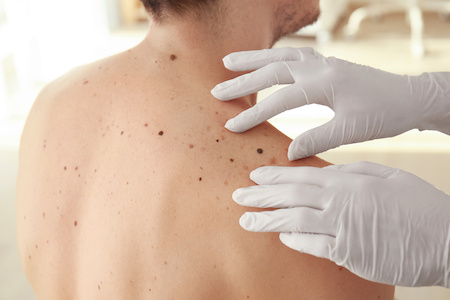 |
If you're looking to become a dermatologist, you'll first need to attend medical school, followed by a dermatology residency.
Medical students in Louisiana can attend a dermatology residency at a couple of schools in the state. Dive into our research below and find the best one for you.
List of Colleges with Dermatology Residency Programs in Louisiana
Two medical schools in Louisiana offer dermatology residencies. We've listed them alphabetically below.
1. LSU Health New Orleans School of Medicine
The Louisiana State University (LSU) New Orleans School of Medicine is a public health science university in New Orleans. It's part of the Louisiana State University system.
The dermatology residency program has been around for over fifty years and combines didactics and clinical rotations into the curriculum. Students spend four days a week in clinics.
Clinical experiences include:
- Burn Unit at University Medical Center New Orleans
- Children's Hospital of New Orleans
- Cutaneous T-Cell Lymphoma Clinic
- Ochsner Foundation Hospital
- Our Lady of the Lake Hospital
- Southeast Louisiana Veterans Healthcare System
- Southeast Veterans' Health Care System
- University Medical Center
Weekly didactics cover topics such as:
- clinical dermatology
- cosmetic dermatology
- dermatopathology
- laser dermatology
- surgical dermatology
Students must submit their Medical Student Performance Evaluation (MSPE) and United States Medical Licensing Examination (USMLE) Step 1 and Step 2 scores to apply.
2. Tulane University School of Medicine
The Tulane University School of Medicine is part of Tulane University, a private research university in New Orleans. The dermatology program serves patients from across the greater New Orleans area.
Resident clinic sites include:
- Children's Hospital New Orleans
- Ochsner Medical Center
- Southeast Louisiana Veterans Hospital
- Tulane Doctors Clinic- Covington
- Tulane Medical Center clinics
- University Medical Center-New Orleans (UMC) clinics
Residents offer continuity clinics on Friday mornings and a cosmetic clinic through the Tulane Medical Center on Tuesday afternoons.
Also held through the Tulane Medical Center are the Cutaneous T-Cell Lymphoma Clinic and the Mohs Surgery Clinic.
Didactics are held every Friday. Topics discussed in didactics include:
- cosmetic dermatology
- dermatopathology
- dermoscopy
- ethics and professionalism
Students must submit their scores for Step 1 of the USMLE to apply. Step 2 scores are recommended but not required. There is no minimum score.
Students in the dermatology program may be interested in pursuing a fellowship after their residency. Tulane offers dermatopathology and two-year clinical research fellowships.
FAQs About Louisiana Dermatology Schools
Discover answers to the most commonly asked questions about dermatology schools in Louisiana.
What Does a Louisiana Dermatology Residency Program Involve?
Dermatology residency programs in Louisiana require a mix of clinical rotations and didactic learning.
Some residencies may also require you to attend conferences or do social outreach.
Do You Have To Go To Medical School to Become A Dermatologist in Louisiana?
You must go to medical school to become a dermatologist in Louisiana.
You must obtain a medical license before you can practice as a dermatologist. One of the requirements to get a medical license is earning a degree from an accredited medical school.
How Many Years of Schooling Are Required To Become A Dermatologist in Louisiana?
On average, you'll need 11 to 15 years of schooling to become a dermatologist in Louisiana.
The first four years will be spent earning your bachelor's degree. Then you'll need another four years of medical school.
Your residency follows medical school and usually takes three years, but it may take longer, depending on the program.
Some students also pursue a fellowship program after their residency, which may add another few years.
What Do You Do After a Louisiana Dermatology Program?
You can do a few things after your dermatology program in Louisiana.
You can attend a fellowship program, typically offered to those who want to specialize in specific fields of dermatology.
Or, you can earn your medical license, a requirement before practicing as a dermatologist. You need to take and pass all three steps of the USMLE to earn your medical license.
The first two steps of the USMLE can be taken while you're in medical school, but the final part of the USMLE is taken after your residency.
You can also earn board certification once you have your medical license. Students who meet the requirements can apply for board certification from the American Board of Dermatology or the American Osteopathic Board of Dermatology.
Find the Right Dermatology Program in Louisiana Today
Students in Louisiana have two excellent choices for dermatology residency programs. Let Best Accredited Colleges help you choose the right one today.

